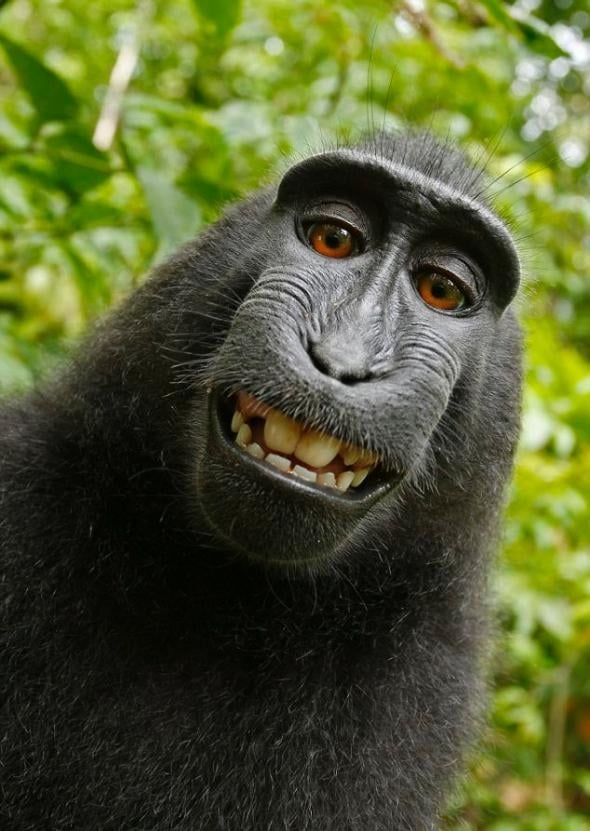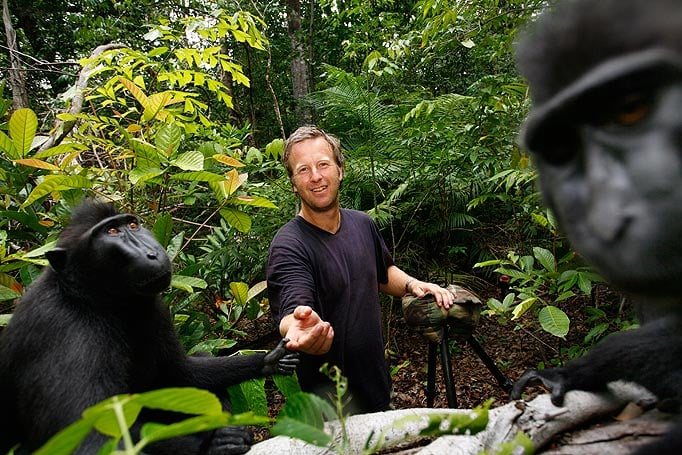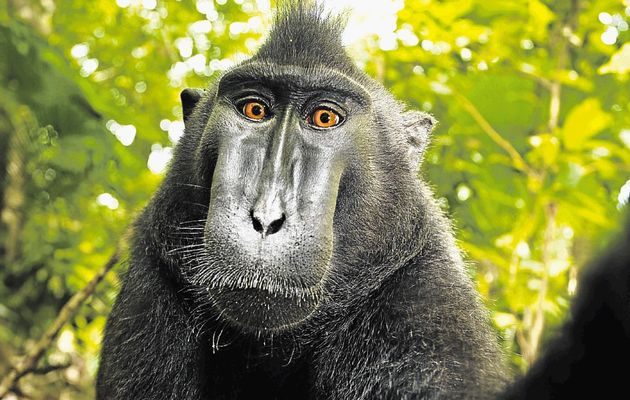Art World
A Monkey Can’t Sue for Copyright Court Says
"Monkey see, monkey sue" isn't working out so well.

"Monkey see, monkey sue" isn't working out so well.

Cait Munro

Those waiting with baited breath for the results of the infamous “monkey selfie” case can rest easy now: a federal judge in San Francisco has indicated that he will dismiss the lawsuit, filed last year against British photographer David Slater by PETA as a challenge to Slater’s ownership of a selfie taken by an Indonesian monkey named Naturo on his camera.
According to Courthouse News, US district Judge William Orrick stated on January 6 that while Congress can extend the protection of certain laws to animals, there’s no indication that they have done so in the Copyright Act.
“If Congress and the president intended to take the extraordinary step of giving animals standing, they would do so plainly,” Orrick stated. “I don’t see that it can be read as broadly as to go beyond humans when I’m interpreting the Act.”

David Slater with crested black macaques.
PETA attorney David Schwarz argued that Slater profited unfairly from the 2011 image in his 2014 book Wildlife Personalities, and that the ruling could have disastrous implications going forward. According to Schwarz, Slater’s claim of ownership of the selfie also amounts to a claim of authorship, and the court must therefore determine who is the legitimate author of the image.
“The more important concept here is to make sure there is a statutory framework in which those who are legitimately claimed as authors can seek protection,” Schwarz said. “You are engaged in a sense in an interpretive act. I wouldn’t call it a policy act. I would call it giving new life to a statute that’s been around for years.”
The image was taken by Naruto on Slater’s unattended camera. Slater claims sole ownership of the photo, and has previously taken issue with its free distribution online. In 2014, Gawker reported on Slater’s attempt to have it removed from Wikipedia Commons. Wikipedia refused, claiming that, since it was taken by Naruto, Slater can’t have it removed. The US Copyright Office later claimed it would “not register works produced by nature, animals, or plants.” PETA has subsequently argued that the Copyright Office policy is “only an opinion.”
In a November motion to dismiss the case, Slater’s lawyer Andrew Dhuey got punny, writing: “Monkey see, monkey sue is not good law—at least not in the Ninth Circuit.”

A second selfie taken by a crested black macaque on David Slater’s camera.
In yesterday’s proceedings, Dhuey encouraged the judge to consider not whether a monkey can author an image, but whether a monkey even has the standing to sue.
“We’re engaging in a Socratic debate, which is not appropriate,” he said. “There is no statutory injury. My client should suffer no more burden fighting this case, your honor.”
Orrick closed the hearing following 20 minutes of debate, stating that he will likely dismiss with leave to amend.
“We will continue to fight for Naruto and his community, who are in grave danger of being killed for bush meat or for foraging for food in a nearby village while their habitat disappears because of human encroachment,” said PETA Jeff Kerr in a statement. “This case is a vital step toward fundamental rights for nonhuman animals for their own sake, not in relation to how they can be exploited by humans.”